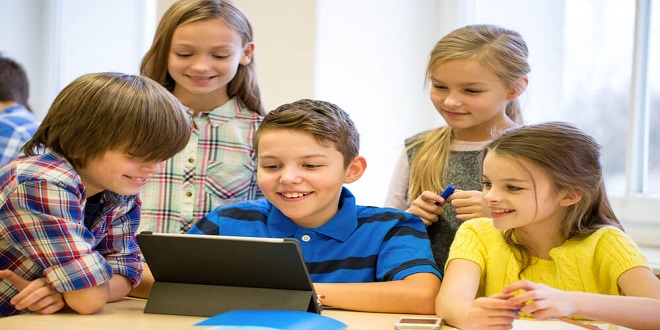“Playing games” has become a learning method

In the game, people’s emotions are happy, just like entering a magic circle, feeling that time passes quickly, and even forgetting everything around them, and making people feel “happy” is very important in education.
Plato once said, “The most effective kind of education is to let children play in interesting games.” The famous educator Spencer pointed out that “children must be happy to receive early education, and whether children are happy is the only criterion for testing any educational method.
Educators such as Montessori and Froebel have systematically studied the game mode in early childhood education. In recent years, my country has also attached great importance to improving the quality of preschool education. In kindergartens, games have become a basic teaching activity. In fact, games can be applied not only to the stage of early childhood education but also to education in all stages. This article will summarize the current application methods and core values of games in the education field.
Apply “light games” in teaching
Classroom teaching is generally divided into three links before class, during class, and after class. Although, you can take help from https://essaywriters.ca for your essay writing.
For example, in the pre-class session, the teacher distributes some small games to detect students’ autonomous learning; in the class session, the small games can be used in the lead-in stage, and the games can be used to attract students’ attention and improve students’ attention. Knowledge mini-games help students learn knowledge; after class, some mini-games can also be used to test students’ knowledge points.
The use of educational resources such as “light games” in teaching is to introduce different knowledge into different types of games. The concept of “light game” was first proposed by Associate Professor which refers to the introduction of some factors in the game that are beneficial to arouse learners’ interest and increase learners’ attention into educational software. It is a kind of interesting learning.
Use games to reorganize teaching activities and develop comprehensive teaching courses based on games
This kind of teaching application is usually a combination of several class hours into a special learning unit, which is convenient for teachers to carry out research learning advocated by the state in teaching.
In a survey of primary and secondary school principals, most principals believed that the combination of high-level thinking skills such as game and inquiry and problem-solving would be more valuable. This kind of teaching application requires strong teaching design skills and generally uses an education online game.
We once cooperated with the Foshan Municipal Education Bureau to carry out the “Gamification Learning Application System Research” project in more than 20 primary and secondary schools in the city. In this project, based on the educational online game “Farm Rhapsody”, an 8-class scientific inquiry course was developed to form a special learning unit.
This course is designed in accordance with the learning steps of scientific inquiry. Students enter the game as a farmer and simulate the construction, operation, and management of a farm. This course can be used for the upper grades of elementary school or the lower grades of junior high school, comprehensively using agriculture, geography, Environment, and another knowledge.
Through such game applications, we not only provide students with a game but integrate the in-game experience with the teaching steps of scientific inquiry to provide a virtual experience and virtual experiment environment.
This learning effect is very good.
A student said, “I felt the importance of money for the first time. I bought a lot of seeds each time, but it was not easy to successfully grow it. I spent a lot of money in vain and felt the hard work of the farmers. We should save food”.
Although the experience in the game is virtual, the emotions obtained are real and transferable. In the game, players start from their own experience and personality and experience different experiences by playing different roles.
The importance of experience for knowledge learning is self-evident. Students can only remember 10% of what they see with their eyes and 20% of what they hear. If there are visual aids and demonstrations, the knowledge retention rate will rise to 30%. If they can observe and explain in person, the knowledge retention rate will be it will rise to 50%, but if students can do it themselves, they can remember 90%.
Experience is an attempt to obtain a certain result. Tolerance is the result of accepting feelings or accepting experience. Only when active attempts and passive tolerance are combined, does experience constitute? Let students experience, not just know.
Compared with traditional gamification courses, there are the following differences in learning resources, learning time, teamwork, personalization, evaluation methods, and understanding of failure.



